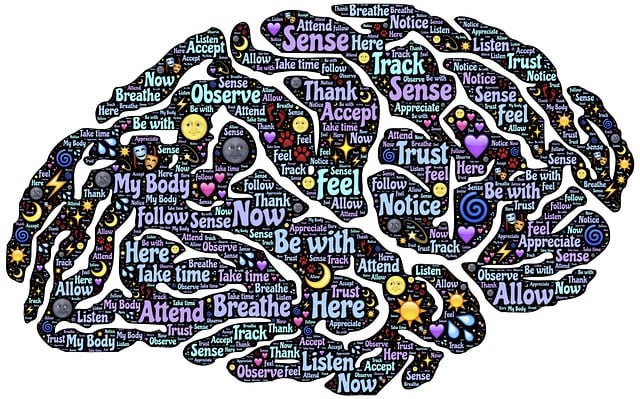Lafayette Gender-Affirming Care Therapy (LGACT) offers a revolutionary approach to emotion regulation, focusing on LGBTQ+ inclusivity and personalized strategies. Through LGACT's holistic model, individuals learn to understand and manage their emotions, cultivating self-compassion and building resilience with techniques like Emotional Intelligence development and mindfulness exercises. Structured sessions create safe spaces for practice, enhancing coping abilities, self-acceptance, and overall mental well-being, making it an empowering tool for personal growth within the therapeutic context of LGACT.
Emotion regulation techniques are essential tools for individuals seeking to navigate life’s challenges with resilience. This article explores the critical role of emotion regulation in therapy, highlighting the innovative Lafayette Model—a gender-affirming approach designed to empower individuals, particularly those in the LGBTQ+ community. We delve into key components of effective training and provide practical strategies for therapists to implement in clinical settings, fostering a more inclusive and supportive environment through Lafayette Gender-Affirming Care.
- Understanding Emotion Regulation and Its Importance in Therapy
- The Lafayette Model: A Gender-Affirming Approach to Teaching Emotion Regulation Techniques
- Key Components of Effective Emotion Regulation Training
- Implementing and Practicing Emotion Regulation Strategies in Clinical Settings
Understanding Emotion Regulation and Its Importance in Therapy

Emotion regulation is a pivotal concept in therapy, especially within the context of Lafayette Gender-Affirming Care Therapy. It refers to the ability to understand, manage, and modify emotional responses, ensuring they are appropriate and adaptive. This process involves recognizing and accepting emotions as they arise, then employing strategies to navigate and transform them constructively.
In therapy sessions, teaching clients effective emotion regulation techniques is a powerful tool for personal growth and healing. The Emotional Healing Processes can be enhanced through Compassion Cultivation Practices, where individuals learn to cultivate a non-judgmental awareness of their emotions, fostering self-compassion and empathy. Additionally, developing Coping Skills enables individuals to navigate challenging situations with greater resilience, ultimately leading to improved mental well-being.
The Lafayette Model: A Gender-Affirming Approach to Teaching Emotion Regulation Techniques

The Lafayette Model represents a groundbreaking approach to teaching emotion regulation techniques, particularly emphasizing a gender-affirming care therapy framework. This model is designed to create a safe and inclusive space for individuals, especially those who identify as part of the LGBTQ+ community, to learn and practice these essential skills. By recognizing that traditional methods may not always resonate with diverse populations, the Lafayette Model offers a tailored strategy. It prioritizes understanding and validating individual experiences, fostering an environment where learners feel seen, heard, and respected.
This approach incorporates various techniques, such as conflict resolution strategies and empathy building strategies, to empower individuals in managing their emotions effectively. Moreover, it addresses the unique challenges faced by marginalized groups, providing a much-needed support system for trauma recovery and emotional well-being. The Lafayette Model’s emphasis on gender-affirming care ensures that emotion regulation education is accessible and beneficial to all, promoting holistic mental health development.
Key Components of Effective Emotion Regulation Training

Emotion regulation training is a powerful tool for personal growth, and when tailored to individual needs, it can be life-changing. The key components of effective emotion regulation training include teaching individuals to identify and understand their emotions, providing strategies to manage intense feelings, and fostering self-compassion. At Lafayette Gender-Affirming Care Therapy, we recognize that everyone’s emotional journey is unique, so our programs are designed to offer personalized guidance.
By incorporating techniques such as Emotional Intelligence (EQ) development, confidence-boosting exercises, and compassion cultivation practices, individuals learn to navigate their emotions in a healthy way. This involves recognizing triggers, cultivating mindfulness, and developing adaptive coping mechanisms. Through these practices, individuals can gain greater control over their emotional responses, leading to improved mental well-being and enhanced relationships.
Implementing and Practicing Emotion Regulation Strategies in Clinical Settings

Implementing emotion regulation techniques in clinical settings offers a powerful approach to enhancing patient well-being, particularly within the context of Lafayette Gender-Affirming Care Therapy. Therapists play a pivotal role in guiding individuals through the process of understanding and managing their emotions effectively. By incorporating strategies such as cognitive reframing, mindfulness exercises, and emotional awareness training, clinicians can empower clients to develop resilience and boost self-esteem. These techniques are invaluable for navigating challenging situations and promoting positive mental health outcomes.
The clinical environment provides a safe space for individuals to explore and practice emotion regulation skills. Through structured sessions, therapists can teach patients how to recognize and interpret their emotional responses, fostering a sense of control. This is especially beneficial for those seeking gender-affirming care, as it supports their journey towards self-acceptance and improves their ability to cope with potential stressors. By regularly practicing these strategies, individuals can build confidence and enhance their overall resilience, leading to improved mental health and well-being.
Emotion regulation techniques teaching, as exemplified by the Lafayette Model, is a transformative tool in therapy, particularly for gender-affirming care. By understanding the key components of effective training and implementing these strategies in clinical settings, therapists can significantly enhance their ability to support clients in navigating and managing their emotions healthily. This approach not only enriches therapeutic outcomes but also contributes to fostering more inclusive and affirming healthcare environments that resonate with diverse individuals.














